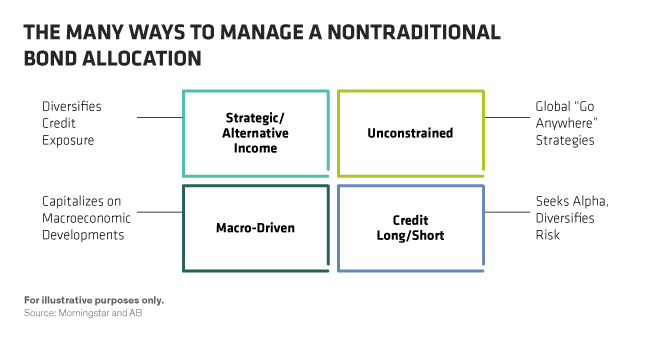Britain on the Brink of Brexit
by Fixed Income AllianceBernstein
A Brexit vote is hanging in the balance ahead of the UK’s June 23 referendum on membership of the EU. The race will have far-reaching implications, even if the UK decides to stay.
A week ago, public opinion polls looked as if they might be shifting in favor of Brexit—a British vote to leave the European Union (EU). More recently, they’ve started to move back in the opposite direction.
Past referendums in the UK (and elsewhere) suggest that a surge in support for change is not unusual shortly before polling day. But, when it comes to the crunch, voters often opt for the status quo.
If this kind of bias is now taking root, the British electorate will probably vote to stay in the EU.
This remains our base case scenario, though we now hold this view with less conviction than we did a few weeks ago.
What might happen if the UK votes to leave?
A Brexit vote wouldn’t mean that the UK will leave the EU immediately. The British government would first need to activate Article 50 of the Lisbon Treaty, which would effectively put it on a two-year countdown to departure.
However, it’s not clear when this would happen, and it would certainly not be in the UK’s interests to do this quickly.
In fact, some commentators have speculated that it might be difficult for parliament (which retains sovereignty on this issue and strongly favors EU membership) to pass the required legislation—especially if the referendum is close and turnout low. So the vote on June 23 may not be the end of the story.
Could Brexit Prove a Lehman Moment?
As we’ve noted in the past, a vote to leave the EU is likely to have a negative impact on the British economy, at least in the short term.
But the magnitude of this impact is highly uncertain. The big danger is that the vote is taking place at a time when the UK is running a record peacetime current account deficit (5.2% of GDP last year). This makes the economy and the British pound particularly vulnerable to any event (like Brexit) that threatens the flow of foreign capital needed to finance government and household-sector borrowing.
A vote to leave the EU is likely to lead to a period of considerable financial-market turbulence, particularly given the weight of “expert” opinion claiming that Brexit could trigger a global meltdown on a par with the turbulence triggered by the collapse of Lehman Brothers.
But there are important differences between a Brexit vote and Lehman’s demise. Brexit is a “known” unknown for which markets and central banks have had months to prepare. It’s unlikely to catch them completely unawares.
Moreover, it’s still not clear why Brexit should inflict material lasting damage on the global economy.
First, the UK accounts for just 2% of global output.
Second, its trading relationships with the EU and other countries would not change for at least two years after a Brexit vote (and possibly considerably longer than that).
Third, while the referendum has been hijacked by immigration concerns, it’s ultimately about sovereignty. Brexit is not about a rejection of free trade and will only become so if the rest of the EU decides to “punish” the UK in a bid to deter other member states from following suit.
Of course, where Brexit could create lasting shockwaves is in the political arena.
A decision to leave the EU would embolden radical and separatist parties elsewhere in Europe and could lead to calls for referendums in other countries. In this respect, it’s worth recalling that Denmark’s decision to reject the Maastricht Treaty in June 1992 forced France to hold a referendum later that year and ultimately led to a crisis in the European Exchange Rate Mechanism (which saw the British pound and Italian lira ejected from the system).
The Ramifications of “Remain”
If the UK votes to stay, leaders across Europe are likely to breathe a long sigh of relief. But they can’t afford to rest on their laurels. In the UK, the governing Conservative party could easily split in the aftermath of this week’s referendum.
Elsewhere in Europe, the political outlook is bleak, with support for mainstream parties having fallen sharply in recent years—and, in most cases, much more so than in the UK.
Against this backdrop, we expect political risk to remain a recurring feature of the European investment landscape for some time to come.
The views expressed herein do not constitute research, investment advice or trade recommendations and do not necessarily represent the views of all AB portfolio-management teams. AllianceBernstein Limited is authorised and regulated by the Financial Conduct Authority in the United Kingdom.
Senior Economist—Europe

Darren Williams is responsible for economic analysis, interest-rate forecasting and bond market strategy for western Europe. He has covered the major economies of western Europe for over 25 years, and has written extensively on the European Economic and Monetary Union and the monetary policy decision-making process of Europe’s central banks. Williams joined the firm in 2003, having previously held senior positions in the economics departments of several leading investment banks, including Citigroup, UBS and Merrill Lynch. He holds a BSc in banking and finance from Loughborough University (UK). Location: London
Related Posts
Copyright © AllianceBernstein















